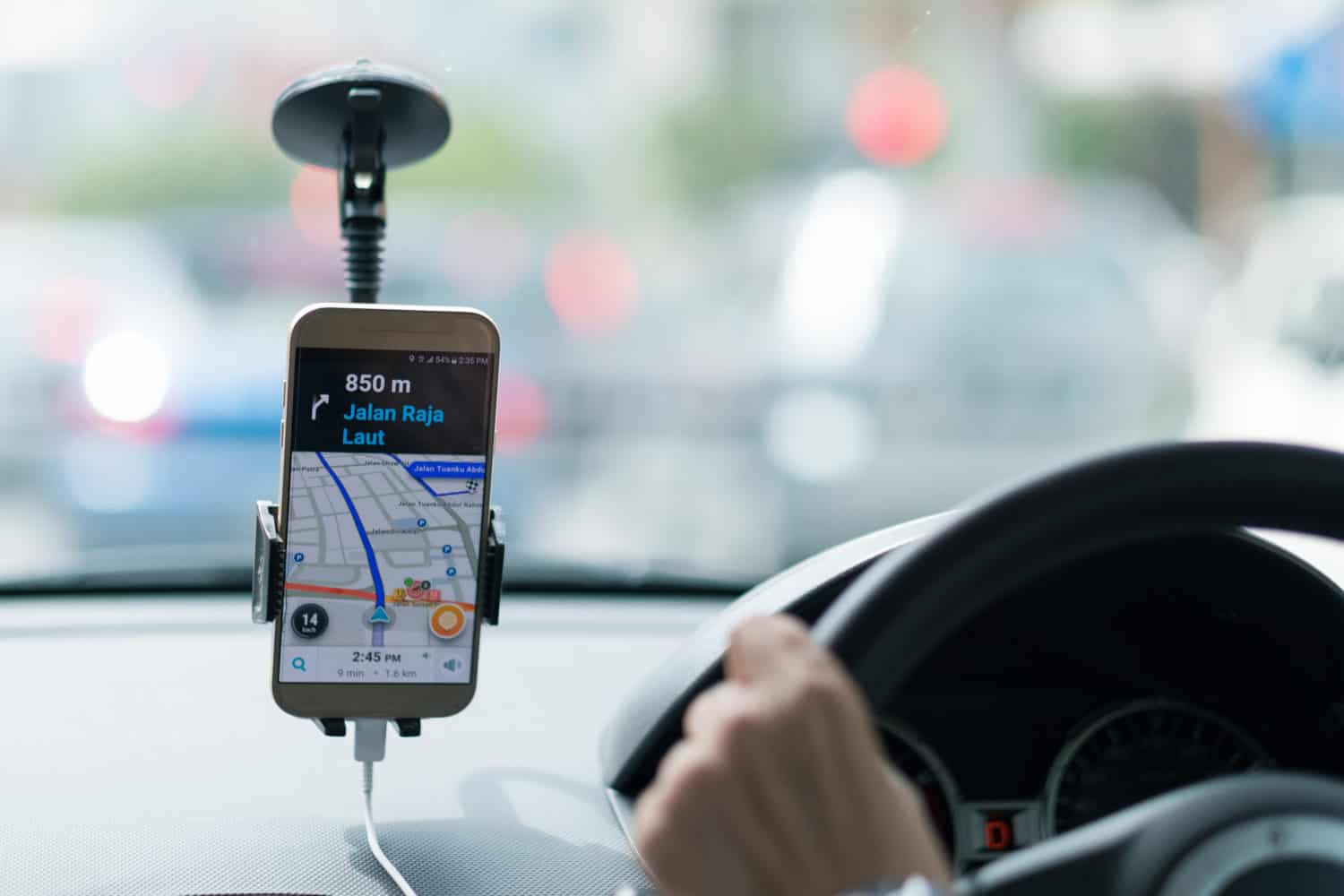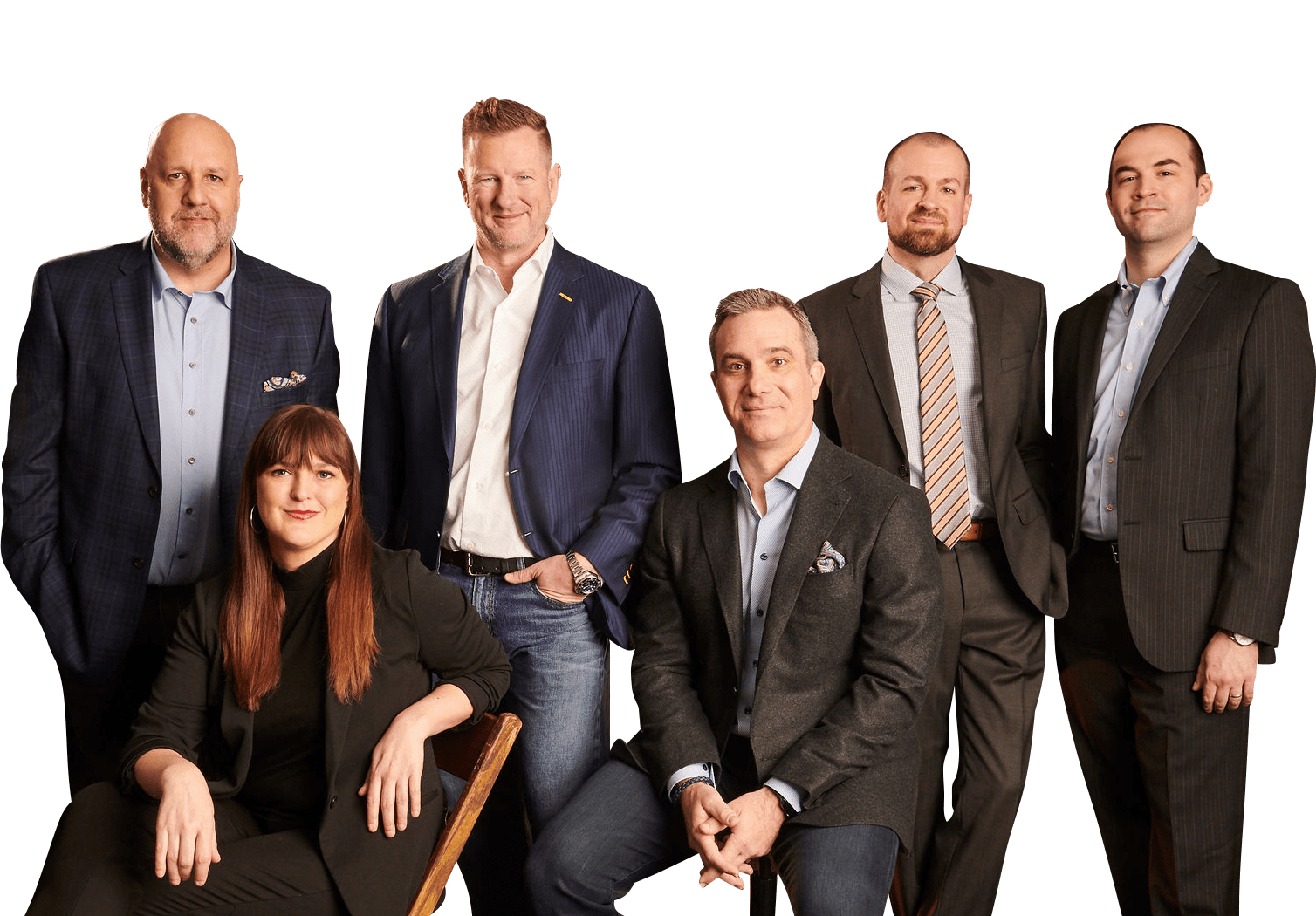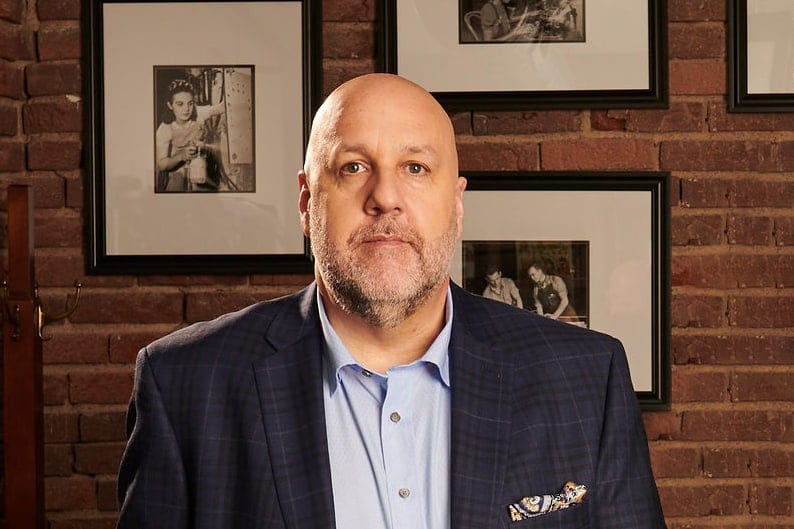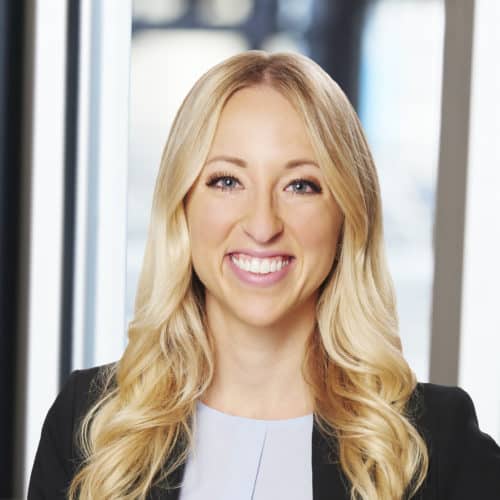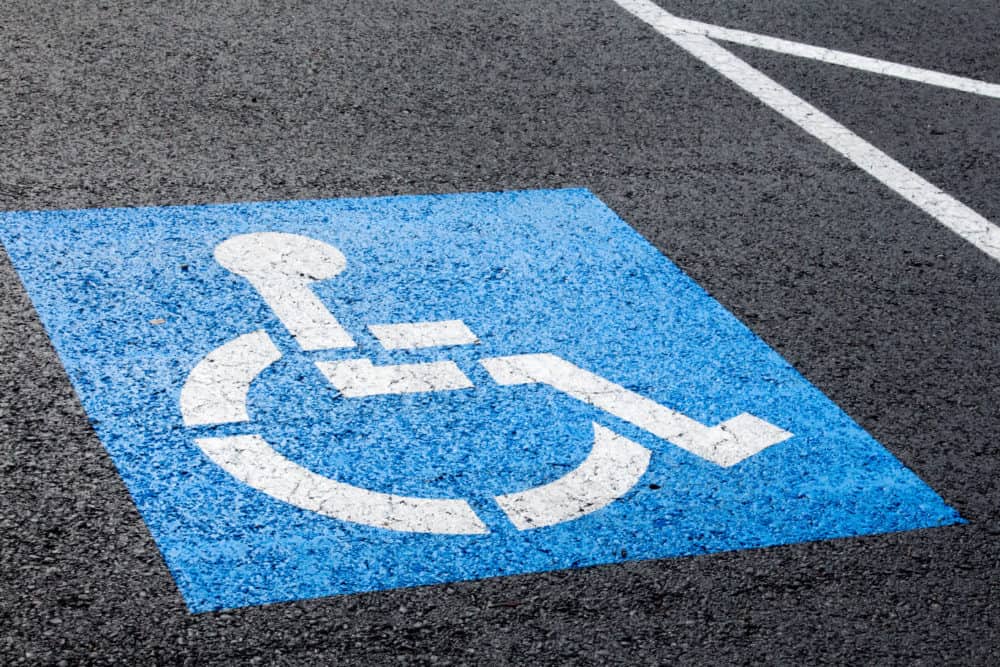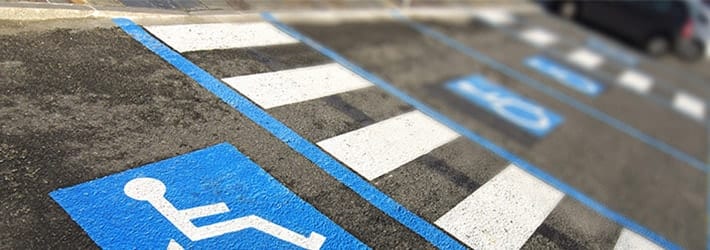The Legal Intelligencer spotlights Attorney of the Year Nominee
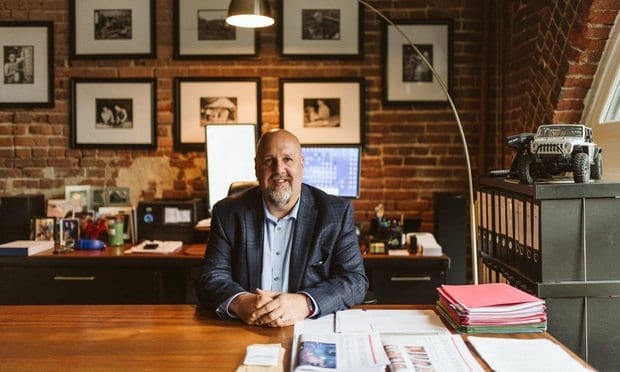
The Legal Intelligencer spotlights Attorney of the Year Nominee and founding Lynch Carpenter LLP partner Gary Lynch, Esq. Gary "is involved in just about every major cyber breach litigation in the U.S., but such cases weren’t always his focus.”
Uber Sued for Discriminating Against Wheelchair-Users
 Lynch Carpenter LLP and Disability Rights Advocates (DRA) filed a class action lawsuit against Uber, challenging the popular ride-sharing service’s failure to make wheelchair-accessible vehicles available in the Pittsburgh area through its rideshare service.
Lynch Carpenter LLP and Disability Rights Advocates (DRA) filed a class action lawsuit against Uber, challenging the popular ride-sharing service’s failure to make wheelchair-accessible vehicles available in the Pittsburgh area through its rideshare service.
Today, Lynch Carpenter LLP and Disability Rights Advocates (DRA) filed a class action lawsuit against Uber, challenging the popular ride-sharing service’s failure to make wheelchair-accessible vehicles available in the Pittsburgh area through its rideshare service. The suit, brought by individuals in and around Pittsburgh, Pennsylvania, challenges Uber’s wheelchair-inaccessibility. The plaintiffs—four individuals who use wheelchairs—brought this action to end Uber’s discriminatory practices and policies.
Since launching its transportation service in San Francisco in July 2010, Uber has experienced explosive growth, has seized an ever-expanding market share from taxi companies, and is now a major provider of individual transportation services in over 450 cities in the United States, including Pittsburgh. However, Uber, a multi-billion-dollar company, does not provide wheelchair-accessible transportation in and around Pittsburgh, in violation of the Americans with Disabilities Act.
Uber has been sued in cities around the United States for its violation of disability laws by failing to provide wheelchair-accessible service, yet it has continued its policy of denying that service.
Uber’s failure to make accessible vehicles available through its service denies people in Pittsburgh who use wheelchairs access to reliable, on-demand transportation that could drastically improve their lives, enabling them to travel to a wider variety of destinations without having to rely on transportation via expensive and unreliable taxis, unreliable paratransit, and limited public transit. It would enable them to travel spontaneously, without having to schedule transportation hours or even days in advance. Unfortunately, Plaintiffs and members of the class are excluded from these benefits, and suffer real harm as a result.
For example, on multiple occasions Plaintiff Paul O’Hanlon has had to travel several miles by wheelchair when he has missed the last city bus. “By reason of my disability I am denied access to Uber’s on-demand transportation that allows others to move around the city on their own schedules,” he said. Similarly, Plaintiff Irma Allen must rely on her son for transportation, which requires him to take time off work and lose a day’s wages. Ms. Allen said, “My family and I are at a distinct disadvantage because Uber doesn’t provide wheelchair-accessible service. It’s not fair that we are being left behind while other folks are enjoying the benefits of Uber’s new technology.”
Michelle Iorio, Staff Attorney at Disability Rights Advocates, said, “Transportation can be a real challenge for people with mobility disabilities, who often don’t have access to their own vehicle and who frequently can’t depend on paratransit because it is unreliable. Accessible ride sharing would facilitate societal integration for persons with disabilities, and Uber’s failure to provide wheelchair-accessible service undermines this potential.”
Echoing this sentiment, Bruce Carlson, a founding partner at national class action firm Lynch Carpenter, LLP, noted: “Uber’s express business plan, as detailed in its regulatory filings, is to displace public transportation with its ride sharing services. The problem is that public transportation, where available, is largely accessible, but Uber’s ride sharing services are not. Uber wants to create a paradigm shift with respect to the provision of transportation services. But will the new paradigm realize the potential of exponentially increasing accessibility, or will it leave individuals with mobility disabilities behind?”
The lawsuit seeks modifications to Uber’s policies and practices to ensure that it makes wheelchair accessible vehicles readily available to persons who need them through its on- demand ridesharing services. Plaintiffs do not seek monetary damages.
In addition to the case filed today against Uber in Pittsburgh, DRA has filed cases against Uber in New York and California for their failure to serve riders who use wheelchairs. DRA has also filed a case against Uber’s competitor Lyft in California. These cases are critical to protecting the rights of wheelchair-users throughout the country.
A copy of the Complaint is available here.
Lynch Carpenter Partner, Kelly Iverson, Top 100 Trial Lawyers in Pennsylvania
 Congratulations to Lynch Carpenter LLP Partner, Kelly K. Iverson for being invited to join The National Trial Lawyers as one of the
Congratulations to Lynch Carpenter LLP Partner, Kelly K. Iverson for being invited to join The National Trial Lawyers as one of the
Top 100 Trial Lawyers in Pennsylvania. Kelly is being recognized as a premier US trial lawyer who exemplifies superior qualifications as civil plaintiff or criminal defense trial lawyers.
Kelly has extensive litigation experience in both state and federal courts and has argued in front of the Superior Court of Pennsylvania.
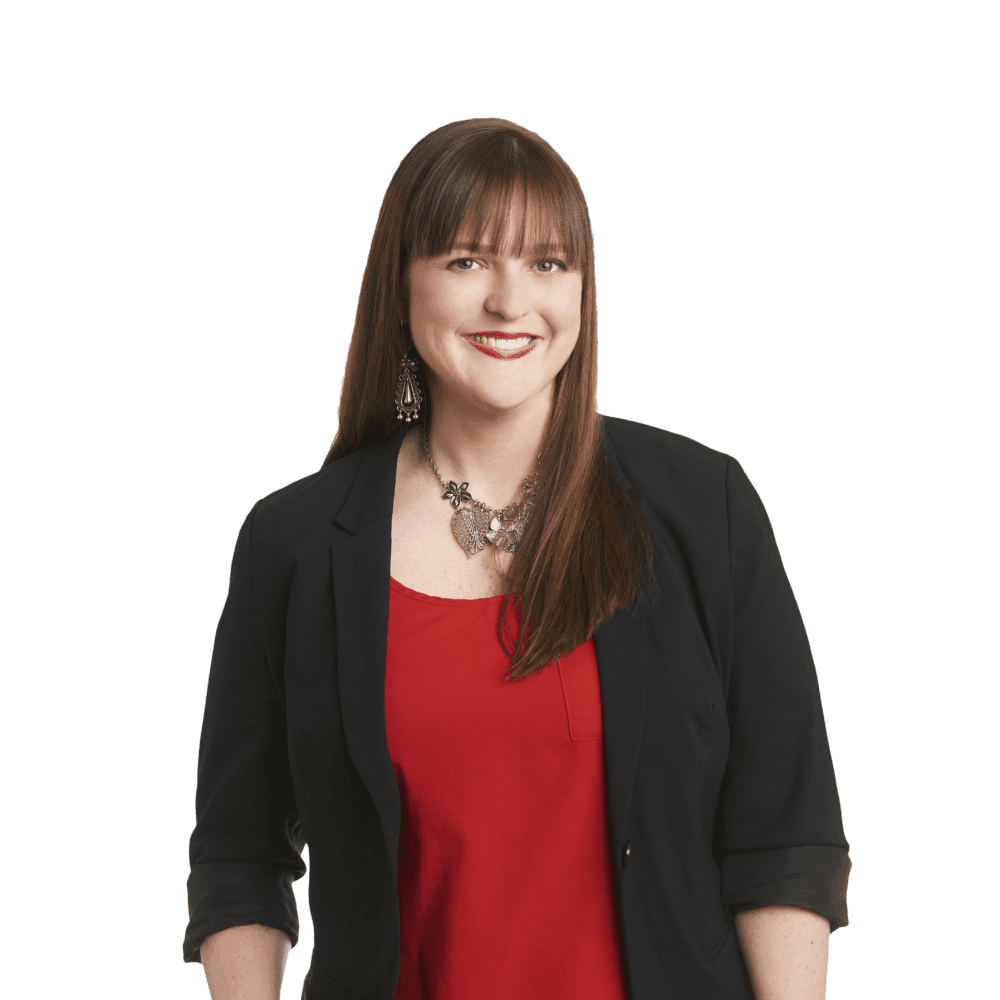
Lynch Carpenter Super Lawyers & Rising Stars Announced
Every year Super Lawyers selects attorneys from all firm sizes & over 70 practice areas throughout the United States. Congratulations to Super Lawyers' Lynch Carpenter LLP Partner Gary Lynch, Ed Kilpela, & Todd Carpenter and Rising Stars Kelly Iverson, James McGraw & Jamisen Etzel.
Super Lawyers selects attorneys using a patented multiphase selection process. Peer nominations and evaluations are combined with independent research. Each candidate is evaluated on 12 indicators of peer recognition and professional achievement. Selections are made on an annual, state-by-state basis. The objective is to create a credible, comprehensive and diverse listing of outstanding attorneys that can be used as a resource for attorneys and consumers searching for legal counsel. Since Super Lawyers is intended to be used as an aid in selecting a lawyer, it limits the lawyer ratings to those who can be hired and retained by the public.
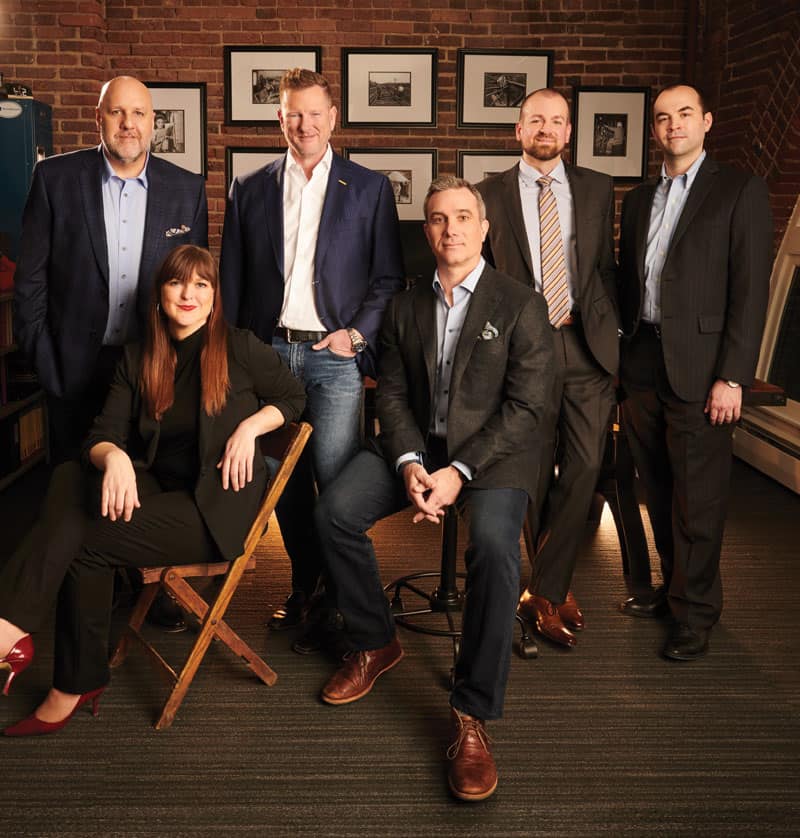
At Lynch Carpenter, our team has been elevating the level of discussion, debate and change towards justice in this country for more than thirty years.
"As we continue to raise the bar fighting for the rights of men & women, we congratulate this group for being selected this year's Super Lawyers* and Rising Stars** recipients." -Bruce Carlson and Gary Lynch
Pictured from left to right: Gary Lynch*, Kelly Iverson**, Bruce Carlson, Ed Kilpela*, James McGraw**, Jamisen Etzel**
Lynch Carpenter Partner, Gary Lynch Name the Legal Intelligencer Attorney of the Year Finalist
 Today, the Legal Intelligencer announced the 2019 Professional Excellence Award winners, highlighting the great work and achievements across the full breadth of the Pennsylvania legal community and naming Gary Lynch, a partner of Lynch Carpenter, Attorney of the Year Finalist.
Today, the Legal Intelligencer announced the 2019 Professional Excellence Award winners, highlighting the great work and achievements across the full breadth of the Pennsylvania legal community and naming Gary Lynch, a partner of Lynch Carpenter, Attorney of the Year Finalist.
In the 2018 landmark cybersecurity and data privacy case, Lynch successfully argued before the Pennsylvania Supreme Court that companies have a common-law duty to protect their electronically stored employee data. The high court’s ruling reversed two controversial lower court rulings that had tossed out a lawsuit against UPMC over a data breach that exposed the personal information of tens of thousands of current and former employees.
Earlier in 2018, Lynch was appointed co-lead counsel of national multidistrict litigation brought by over 70 financial institutions against Equifax, related to the company’s 2017 data breach.
Lynch is helping to shape the emerging area of data breach and privacy law through his work on several cases over the past few years, including data breach litigation involving Target, Home Depot, UPMC and Wendy’s. He was co-lead counsel for the financial institutions suing Home Depot, following the home improvement retailer’s 2014 data breach and on the five-person executive committee overseeing the prosecution of nationwide litigation against Target for its 2013 breach.
In addition to his work in the cyber security arena, Lynch continued his consumer protection and employee wage and hour practice in 2018, serving as co-lead for plaintiffs in a trial against the Penthouse Club in Philadelphia and securing a verdict of $4.5 Million on behalf of a class of exotic dancers who were misclassified as independent contractors by the night club.
Using Motor-Voter Rolls Can Enhance Inclusiveness in Jury Pools

Editor's note: On October 2, 2018, the California Secretary of State reported a record 19 million registered voters are now on the rolls. According to Paul Mitchell, head of Political Data, Inc., much of the rise in registered voters is the new California Department of Motor Vehicle program that automatically signs up voters or updates their address, when they renew drivers' licenses and identification cards. The DMV process has had some "bumps in the road." By the end of 2018, the DMV reports 23,000 mistakes including duplicate registration and incorrect part affiliation and 1,500 improper registrations of parolees, noncitizens and minors!

A United States citizen’s entitlement to a jury of one’s peers is a touchstone of our justice system and rooted in the Constitution’s right to trial by an impartial jury. Recognizing this democratic principle and striving to achieve adequate representation and inclusiveness in our federal jury panels is critical not only to afford criminal defendants a fair trial, but also essential to foster an environment of active public engagement and to support public confidence in “the process.”
Many district courts in the Ninth Circuit can vastly benefit by supplementing current source lists for their master jury wheels with driver’s license rolls. Currently, most impanelment lists in this circuit are compromised only of voter registration lists. The Ninth Circuit Jury Trial Improvement Committee has recommended the use of motor-voter pools in its Model Plan “in order to increase inclusiveness and to provide better representation of the adult citizen population who are qualified to serve as jurors.” Ninth Circuit Jury Trial Improvement Committee, First Report on Goals and Recommendations (“First Report”), May 2004, p. 4. Adopting the recommended practice of using motor-voter pools to populate jury panels would aid in efficiently reaching the maximum number of qualified citizens to serve as jurors, and would assist in diversifying jury panels to reflect the U.S. citizen population accurately.
The Federal Jury Selection and Service Act of 1968 declares “[i]t is the policy of the United States that all litigants in Federal courts entitled to a trial by jury shall have the right to . . . juries . . . from a fair cross section of the community . . .” 28 U.S.C. § 1861. The Act recognizes that voter lists are the primary source for jury impanelment lists but encourages federal courts to “prescribe some other source or sources . . . where necessary to foster the policy [of representation of a cross section].” 28 U.S.C. § 1863(b)(2); § 1861. In relevant part to this article, the two major requirements an individual must satisfy to be legally qualified to serve on a federal jury is that he or she (1) is a United States citizen and (2) is at least 18 years old. See 28 U.S.C. § 1865(b). Accordingly, voter rolls have historically been a widely accepted method used to create jury panels. In fact, there are currently eight districts in the Ninth Circuit that still utilize only voter lists for populating their jury panels: Alaska, Arizona, Central District of California, Southern District of California, Guam, Nevada, Northern Mariana Islands, and Oregon. However, voter rolls present a wide array of shortcomings that impede upon attaining jury inclusiveness.
Voter lists fail to constitute a “fair cross section of the community” primarily because minorities, the young, and the poor tend to register to vote and vote at lower rates than the remainder of the eligible population. See Jeffrey Abramson, “We, The Jury: The Jury System and the Ideal of Democracy,” at p. 128 (1994). Indeed, national census statistics reveal, “voter registration lists tend to disproportionately represent persons when compared to the total U.S. citizen population in certain age, income, employment classifications, and education categories.” First Report, p. 4. This phenomenon can be attributed in part to the failure of voter registration lists to keep up with the progression of technology, and as a result, voter lists ultimately fail to capture an accurate composition of eligible citizens. To illustrate, PEW researchers estimate at least 51 million eligible U.S. citizens are unregistered, representing more than 24 percent of the eligible population. See PEW, Election Initiatives “Inaccurate, Costly, and Inefficient: Evidence That America’s Voter Registration System Needs an Upgrade,” February 2012, p. 8. One reason for such a significant number of unregistered citizens is that archaic, “paper-based processes” used for voter registration fail to keep up with changes in individuals’ names, addresses, and/or party affiliations, thus, resulting in inaccurate and incomplete data.
The Ninth Circuit’s reach fares slightly better than the U.S. overall in that voter registration lists contain approximately 66 percent of the adult citizen population in the states that comprise the circuit. However, these percentages are wholly inadequate in light of the benchmarks for adequate source list coverage established by the American Bar Association (80 percent) and the National Center for State Courts (85 percent).
State programs, such as California’s New Motor Voter Program, are working to increase voter registration and will ultimately enhance inclusiveness for jury pools. See generally AB 1461. In April 2018, the California DMV began to automatically register qualified driver’s license applicants to vote when they renew or obtain a driver’s license, unless the applicant expressly opts out. Excluded from automatic voter registration are undocumented Californians who maintain drivers’ licenses pursuant to AB 60. See California Secretary of State, California Motor Voter, located at https://www.sos.ca.gov/ elections/california-motor-voter/. Under the program, the DMV sends voter information electronically to the California Secretary of State’s Office, which then verifies citizenship requirements. Importantly, the DMV and SOS will work conjunctively to ensure that individuals with AB 60 drivers’ licenses are not eligible to participate in the program.
California DMV spokesperson Jessica Gonzalez reported that the DMV has “programming in place” to prevent inadvertent voter registration of non-citizens. Moreover, Secretary of State Alex Padilla assures the security of voter registration under the new law, as potential voters will “have to demonstrate proof of age, [and] the vast majority of time people are showing a birth certificate or a passport, which also reflects citizenship. That’s arguably more secure than someone checking a box under penalty of perjury.” Samantha Lachman, Huffington Post, Jerry Brown Signs Automatic Voter Registration in California, October 10, 2015, at https://www.huffingtonpost.com/entry/automatic-voter-registration-california_us_561680d5e4b0082030a15119.
Lastly, voter pre-registration is available under the program for 16 and 17-year-olds, ensuring a greater presence of the younger population on future jury panels. Undoubtedly, this law advances the goal of attaining more representative jury pools for the remaining California district courts that have not yet added drivers’ license lists to their master wheels.
The committee is confident that supplementing current voter registration lists with drivers’ license lists would provide the most comprehensive coverage of eligible citizens—drivers’ license lists alone account for “more than 90 percent of the adult citizen population in the Ninth Circuit states.” First Report at p. 4. Accordingly, adding drivers’ license lists to federal impanelment wheels would ensure superior reach to all eligible U.S. citizens, increase public participation, significantly expand jury inclusiveness, and bolster the integrity of the justice system.
Pa. Supreme Court rules UPMC — and all employers — must protect workers' data. Doing so is harder.
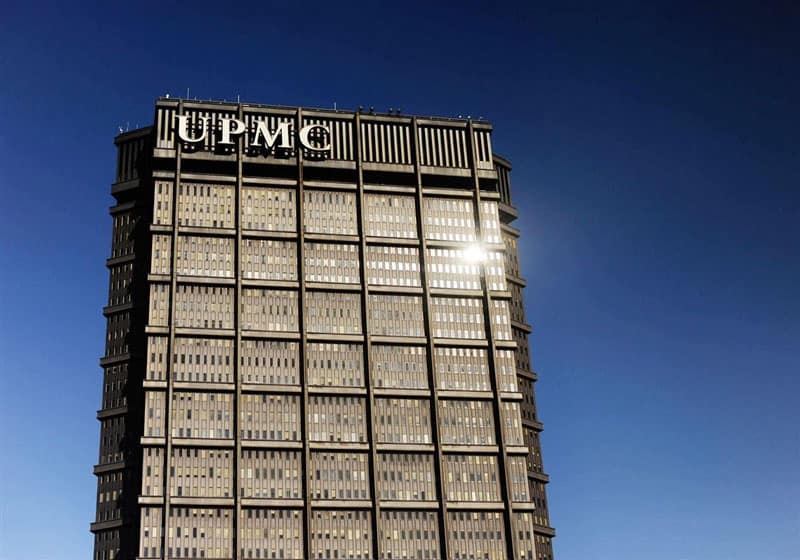 Gary Lynch, Esq. and Jamisen Etzel argued and won at the Commonwealth of Pennsylvania Supreme Court that UPMC breached common law legal duty.
Gary Lynch, Esq. and Jamisen Etzel argued and won at the Commonwealth of Pennsylvania Supreme Court that UPMC breached common law legal duty.
They said UPMC had to meet a standard of reasonable care in handling employee data, because failure to do so could result in harm and it did - to the tune of several million dollars.
Lynch Carpenter Wins Major Data Privacy Case in Pennsylvania Supreme Court
On November 21, 2018, the Supreme Court of Pennsylvania issued a landmark ruling in the case of Dittman v. UPMC in favor of employees at the University of Pittsburgh Medical Center (UPMC) represented by Lynch Carpenter. In its decision, the Supreme Court of Pennsylvania held that UPMC had a duty to reasonably protect its workers’ personal data from cyber theft. This decision will very likely have a profound impact on future data breach litigation, specifically regarding the degree to which recipients of sensitive, personally identifying information are required to act reasonably in electronically storing and safeguarding such data. Gary Lynch argued the case on behalf of the employees, with Lynch Carpenter attorney Jamisen Etzel spearheading the briefing.
How the Case Arose
In February 2014, UPMC first informed the public about its data breach. Initially, UPMC claimed the data leak involved the names, addresses, bank information, birth dates, salaries, and social security numbers of only 22 workers. Two months later, however, in April 2014, UPMC updated this information and stated that 27,000 workers had information stolen. In May 2014, UPMC finally confirmed that all of its current as well as former workers were affected by the breach.
While the extent of the breach was still being investigated, in June 2014, Lynch Carpenter filed a class action lawsuit against UPMC in the Court of Common Pleas of Allegheny County, on behalf of all UPMC employees (consisting of approximately 62,000 current workers and an undetermined number of former employees). The lawsuit alleged that UPMC:
- Failed to adopt, design, and maintain adequate security measures for worker data privacy rights.
- Failed to implement processes that would detect security breaches in a timely manner
- Failed to meet current data security industry standards regarding authentication protocols, encryption, and firewalls
- Breached its duty of reasonable care to secure personal information, and
- Violated administrative guidelines
The lawsuit sought recovery of economic losses resulting from the filing of fraudulent tax returns in the names of workers whose information was stolen, as well as the increased risk that workers faced in the future of becoming the victims of identity theft, fraud, and abuse.
The Procedural History of the Case
The case took several years before it was heard by the Pennsylvania Supreme Court. The Court of Common Pleas initially dismissed all counts in the complaint, holding that UPMC owed no duty to reasonably protect employee data from cyber theft and, in any event, such a negligence claim based solely on economic damages would be barred by Pennsylvania’s economic loss doctrine. The Superior Court later affirmed the Court of Common Pleas’ dismissal. The Supreme Court of Pennsylvania, however, ultimately reversed this decision.
The Supreme Court of Pennsylvania’s Ruling
There are two notable components to the Supreme Court of Pennsylvania’s ruling:
- Duty to protect sensitive data from cyber theft. As part of its decision, the Supreme Court of Pennsylvania rejected the concept that it was creating a “new affirmative duty” for the holders of sensitive information. Instead, the Court found it was merely applying a long-established duty to a novel scenario. As a result, the Court held that where an employer’s collection of personal data belonging to workers creates a foreseeable risk of data breach, an employer has a duty of reasonable care to secure this data. This led the Court to conclude that UPMC should have realized a cybercriminal might take advantage of vulnerabilities in the company’s computer system and steal data belonging to current and past workers.
- Negligence claims involving “purely” economic loss. In its decision, the Supreme Court of Pennsylvania further held that Pennsylvania’s economic loss doctrine does not prohibit negligence claims seeking “purely” economic damages, so long as the duty sought to be enforced arises independently of any contractual duty. In reaching this holding, the Court clarified its prior decisions enunciating and applying the economic loss doctrine and rejected any and all previous pronouncements of the doctrine by lower Pennsylvania courts which had suggested an oversimplified interpretation of the doctrine which disallowed any tort claim in which only economic damages are sought. This significant holding by the Court makes it clear that if the duty which forms the basis for a tort claim arises independently of any contractual obligation between parties, such claim is viable even if purely economic damages are sought. As a result, the Court found that UPMC had a duty to reasonably secure personal data under general principles of negligence law, and the economic loss doctrine does not prohibit the workers’ claims.
Protecting the Privacy Rights of Workers
Data breaches are occurring in our society at an alarming rate. If you are a victim of a data breach, it is important to remember that the holder of your data is obligated to act reasonably to store and protect it from cyber theft. If you believe the holder of your data has failed to uphold this duty, please contact Gary Lynch at Lynch Carpenter today by calling 1-(800)-467-5241 or contact us here.
Court Preliminarily Approves Nationwide ADA Parking Settlement Against Cracker Barrel
On May 15, 2017, the Honorable Robert C. Mitchell, sitting in the Western District of Pennsylvania, entered an Order preliminarily approving the proposed class actions settlement, directing the issuance of settlement notice and scheduling a hearing on final approval in Sarah Heinzl v. Cracker Barrel Old Country Store, Inc. This relief achieved on behalf of the mobility-disabled community is nothing less than extraordinary. The settlement is the culmination of two and a half years of vigorously pursued and hotly contested litigation in which Ms. Heinzl successfully defeated each and every motion filed by Cracker Barrel. The comprehensive and historic relief achieved here obligates Cracker Barrel to, not only, ensure that all of the Cracker Barrel Parking Facilities are accessible to individuals with mobility disabilities but it also puts in place a policy and process for identifying and removing barriers at Cracker Barrel Parking Facilities nationwide for years to come. Ms. Heinzl has proven her importance and dedication to the disabled community not only through her advocacy and past employment but also as a class representative in this case and others. Lynch Carpenter partner Ed Kilpela led the firm’s litigation efforts behalf of the Class. Lynch Carpenter partner Ed Kilpela led the firm’s litigation efforts behalf of the Class.
Lynch Carpenter Certifies Class In Steak’n Shake
On April 27, 2017, the Honorable Robert C. Mitchell, sitting in the Western District of Pennsylvania, entered an Order certifying a class or all persons with mobility disabilities who were or will be denied the full and equal enjoyment of the goods, services, facilities, privileges, advantages or accommodations of any Steak ‘n Shake restaurant location in the United States on the basis of a disability because such persons encountered accessibility barriers in the parking facilities of the restaurant. In granting class certification, Judge Mitchell rejected every single argument advanced by Steak ‘n Shake and found the case presented common questions with common answers: “The Plaintiffs have shown sufficient evidence – at this juncture – that Defendant applies the same ADA maintenance policies and practices in a uniform way to the restaurants it owns and controls, which may prove to be harmful to the class members protected rights” noting that while Steak ‘n Shake monitors its parking lots for cracks and potholes it does nothing to identify or remediate slope issues and other relevant disability access violations. Additionally, Judge Mitchell confirmed Steak ‘n Shake’s obligation under the ADA to maintain the accessible features of its restaurants so that individuals with disabilities may have the same dining experience as able-bodied individuals. Lynch Carpenter partner Ed Kilpela is leading the firm’s litigation efforts.


